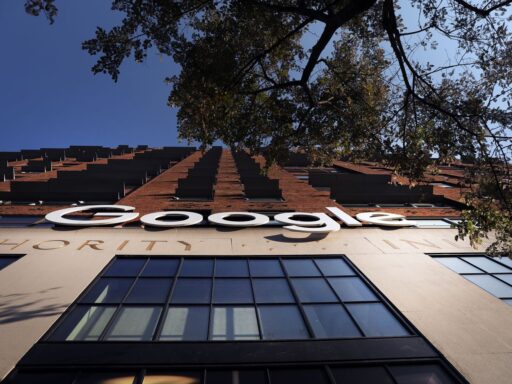Breaking up companies like Amazon and Facebook has rare bipartisan support but different rationale.
The Biden administration is inheriting a number of lawsuits aimed at breaking up Big Tech monopolies in the United States. It’s a cause most Americans support, according to a new poll by Vox and Data for Progress.
Some 59 percent of people surveyed in the online poll said they supported breaking up Big Tech monopolies, including 24 percent who said they strongly support it. Efforts to rein in tech monopolies could include undoing Facebook’s acquisition of Instagram or barring Amazon from being both an online marketplace and a seller in that marketplace.
An even higher percentage — nearly two-thirds — of Americans say the economic power of these tech companies is a problem facing the US economy. The Vox and Data for Progress poll was conducted in January among 1,164 likely US voters.
Strikingly, feelings about Big Tech antitrust are generally consistent among Democrats and Republicans, though Republicans were more likely to say it was a problem and that it should be broken up. This mirrors the rare bipartisan support the antitrust cases have seen from lawmakers. (The new data was consistent with a similar poll Vox and Data for Progress conducted in 2019.)
The reasons Democrats and Republicans have for believing tech companies hold too much power, however, vary.
To wit: Another poll question found that while 87 percent of Democrats approved Twitter’s decision to permanently suspend then-President Donald Trump in the wake of the Capitol riot, only 28 percent of Republicans approved; 67 percent of Republicans didn’t approve of the decision. The vast difference in responses points to divergent criticism of tech companies among the two parties. Those on the right have lambasted Big Tech for perceived censorship, while those on the left have accused companies like Facebook and Google of stoking online extremism.
Regardless, support for antitrust action is one of the reasons the government, after two decades of leniency, filed a total of five antitrust cases against Big Tech late last year. In December, both the Federal Trade Commission and attorneys general from 48 states and territories filed twin lawsuits against Facebook alleging it illegally maintained its social media monopoly through acquisitions of rival companies, including Instagram and WhatsApp. Google is facing three antitrust lawsuits on behalf of nearly all the states and the Justice Department: two involving its search engine and search ad business and another regarding its ad tech business. All three cases accuse the search engine behemoth of illegally maintaining its monopolies.
Back in October, Congress issued a 400-page report that said Facebook, Google, Apple, and Amazon all engaged in anti-competitive behavior. So it’s possible Apple and Amazon will face antitrust lawsuits in the future as well.
The existing cases will likely be combined into fewer lawsuits, whose outcomes could take years. They will also be dependent, in part, on the appointments President Biden makes to the government agencies that oversee antitrust cases: the FTC and the Justice Department.
Recode’s Jason Del Rey reported last week that Lina Khan, who served as legal counsel in the House antitrust investigation and is considered an enemy of Big Tech, is a top candidate for a commissioner role at the FTC. The leadership at the Justice Department might be more favorable to Big Tech. The American Prospect and the Intercept reported that the top two candidates to lead its antitrust division, Renata Hesse and Juan Arteaga, have both previously advised big tech companies.
Whoever ends up leading these agencies will have to consider how the American people are united — for once — in their scrutiny of Big Tech.
Author: Rani Molla
Read More



